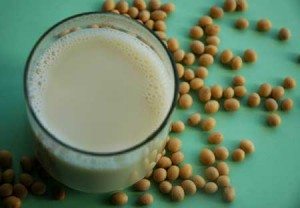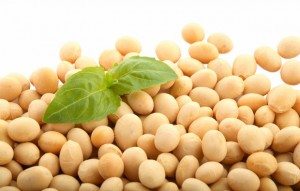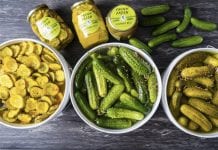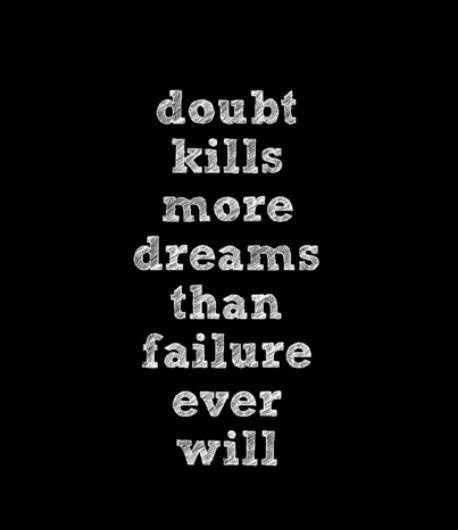 By Jessica Borges, LuxEco Living Editorial Assistant
By Jessica Borges, LuxEco Living Editorial Assistant
As I sit in a cozy coffee shop with the soy latte I was once enjoying, I suddenly wish I had opted for skim milk instead. With my laptop fired up, I stumble upon a website revealing the numerous dangers of what most deem to be a healthy part of one’s diet: soy. Praised for its reputation as a good source of protein while being low in saturated fats, soy is a popular choice for many. What the soy latte order-ers of the world aren’t aware of, are the many underlying health risks that come with heavy or long-term use of this popular coffee supplement.
Unfermented soy (found in soy milk, soy burgers, tofu and soy nuts) contains high levels of phytic acid or phytates, which block the absorption of essential minerals such as calcium, magnesium, iron and zinc in the intestinal tract. It also contains hemagglutinin, a clot-promoting substance that can stunt human growth. What’s worse, is some unfermented soy may be linked to reduced male fertility, increased cancer risk and damaged brain function.
 The issue we face today is public unawareness of these health risks. It would be unlikely that from 1992 to 2006 soy food sales increased from $300 million to nearly $4 billion if people knew exactly what they were ingesting. A large marketing effort to portray soy in a healthy light prompted grocery stores to stock about 60 percent of their food containing soy derivatives. Touted as a healthier, low-fat protein alternative for meats and poultry, soy has seduced a number of Americans to add it to their diets. As a result, soybean is America’s third largest crop, supplying over 50 percent of the world’s soybean demand. Even more disheartening is over 90 percent of American soy crops are genetically modified and sprayed heavily with pesticides.
The issue we face today is public unawareness of these health risks. It would be unlikely that from 1992 to 2006 soy food sales increased from $300 million to nearly $4 billion if people knew exactly what they were ingesting. A large marketing effort to portray soy in a healthy light prompted grocery stores to stock about 60 percent of their food containing soy derivatives. Touted as a healthier, low-fat protein alternative for meats and poultry, soy has seduced a number of Americans to add it to their diets. As a result, soybean is America’s third largest crop, supplying over 50 percent of the world’s soybean demand. Even more disheartening is over 90 percent of American soy crops are genetically modified and sprayed heavily with pesticides.
Dr. Mike Fitzpatrick, a New Zealand biochemist conducted research on soy and found it to be especially harmful to infants who ingest soy formula. Fitzgerald claims that the estrogen in soy can harm an infant’s sexual development and reproductive health. Infants who are fed soy formula take in approximately five birth control’s worth of estrogen a day, which translates to up to 20,000 times the amount of estrogen in circulation than those fed other formulas.
 According to Soy Online Service, any amount of soy for infants is too much. For the average adult, 30 mg of soy (five ounces of soy milk or 1.5 ounces of miso) per day is found to have a negative impact on thyroid function. The isoflavones that are present in soy act as an anti-thyroid agent, capable of suppressing thyroid function or worsening hypothyroidism.
According to Soy Online Service, any amount of soy for infants is too much. For the average adult, 30 mg of soy (five ounces of soy milk or 1.5 ounces of miso) per day is found to have a negative impact on thyroid function. The isoflavones that are present in soy act as an anti-thyroid agent, capable of suppressing thyroid function or worsening hypothyroidism.
So with all of these health issues, how do we determine good soy from bad? The key lies in finding healthy fermented soy products. When consumed in moderation, products such as miso, tempeh, natto and tamari sauce are generally healthy, since the fermentation process removes the phytates, trypsin inhibitors and hemagglutinin. Make sure you also check for the organic stamp on soy product labels before you purchase them. As for those soy lattes, it doesn’t hurt to ask the barista if their soy milk is organic, so you can enjoy your caffeine fix knowing your health isn’t at risk.
To learn more about how to find foods without soy, visit the Manufactured Food Database.
Some products that contain soy:
Biscuits
Cakes
Pastries
Chicken nuggets
Pies
Soups
Breads
Crackers
Meat substitutes
Breakfast cereals
Baby foods
Sandwich spreads
Vegetarian burgers
Pancakes
Sausages
Doughnuts













